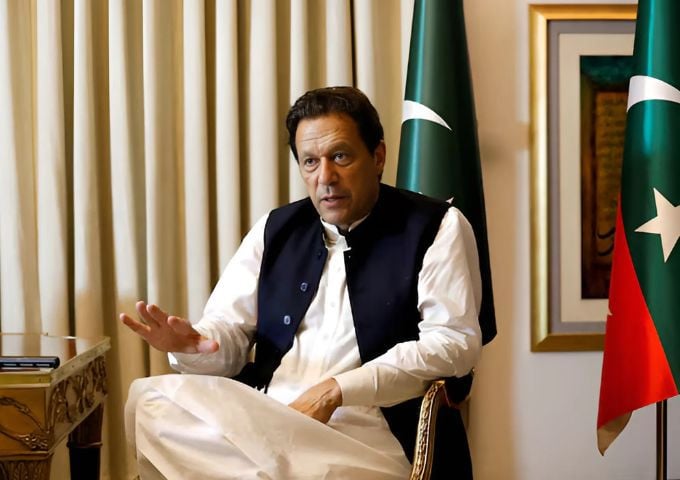The Pakistani lawmakers’ letter outlines accusations against Imran Khan, alleging that he incited political violence and made threats against state institutions

By Asghar Ali Mubarak
ISLAMABAD: The recent actions of Pakistani legislators regarding a letter from 62 members of the U.S. Congress have sparked significant political discourse. Members of Pakistan’s National Assembly, numbering around 160, have condemned the congressional appeal that urged President Joe Biden to pressure the Pakistani government into releasing Imran Khan, the founding chairman of the Pakistan Tehreek-e-Insaf (PTI) party. This sentiment was conveyed in a letter addressed to Prime Minister Shahbaz Sharif, characterizing the U.S. lawmakers’ intervention as an unwarranted intrusion into Pakistan’s internal affairs.
Prominent figures among the legislators, including Tariq Fazal Chaudhry, Naveed Qamar, Mustafa Kamal, Aasiya Naz Tanoli, and Khalid Magsi, expressed their deep concern over this perceived interference. They urged Prime Minister Sharif to communicate formally with the U.S. Congress, emphasizing that Pakistan is currently facing democratic challenges exacerbated by what they describe as “disruptive politics.” The Pakistani lawmakers’ letter outlines accusations against Imran Khan, alleging that he incited political violence and made threats against state institutions.
It specifically references the unrest that erupted on May 9, 2023, when protesters allegedly incited by Khan targeted significant buildings, including Parliament and state-run media outlets. The letter argues that Khan’s political strategies are not unprecedented, citing past incidents from August 2014 and May 2022, which the lawmakers assert led to widespread disruption in the country. They claim that Khan continues to incite unrest and violence even while incarcerated, pointing to his use of social media as a platform for what they label “digital terrorism.”
In addition, the letter suggests that discontented expatriates in the U.S. and U.K. have contributed to Khan’s negative campaign, raising concerns among authorities about the activities of their citizens abroad. This backdrop of political tension coincides with a recent letter from approximately 60 Democratic lawmakers in the U.S. House of Representatives, which called on President Biden to leverage America’s influence over Pakistan’s government to secure the release of political prisoners, including Imran Khan.
U.S. Representative Greg Casar, who led this initiative, noted that it represents the first unified call from multiple Congress members for Khan’s release. This situation is particularly intriguing given Khan’s historically fraught relationship with Washington, marked by his criticism of U.S. foreign policy. Since his ouster in April 2022 through a parliamentary no-confidence vote, Khan has been imprisoned and has faced numerous charges, which he and his party contend are politically motivated.
The intricate interplay of domestic political dynamics and international relations is evident in this unfolding situation, highlighting the challenges Pakistan faces in navigating its political landscape amidst external pressures. As the matter evolves, it remains to be seen how the Pakistani government will respond to both internal demands and external appeals concerning Imran Khan’s status.



